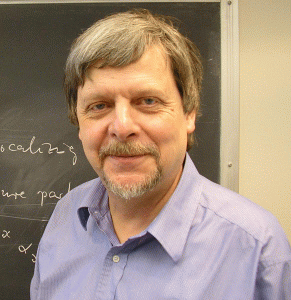|
SPECIAL HISTORY LECTURE by Detlev Buchholz Institute of Theoretical Physics, University of Göttingen on The Quest for Understanding Particles
Abstract: A first breakthrough was made by Wigner, who proposed to describe particles as irreducible quantum systems whose states transform covariantly under the action of the spacetime symmetries. On the mathematical side, this triggered the theory of induced representations of non-compact groups, and it led to an understanding of the properties of mass and spin. Further progress was made when it was realized that the spacetime localization properties of observational procedures and their causal structure have to be taken into account in the mathematical formalism. This principle of locality is the basis for our present understanding of the appearance of anti-particles, the phenomenon of particle (Bose or Fermi) statistics and global compact symmetry groups (charges). On the mathematical side, these developments required progress in category theory and led to deep duality theorems in the theory of representations of compact groups. However, they also led to a crisis in our understanding of particles: the prototype of a model of particle physics, quantum electrodynamics, is in conflict with Wigner's particle concept. The nature of this conflict and earlier attempts to circumvent it will be explained. A promising mathematical concept covering all stable particles (and containing Wigner's concept as a special case) is the recent notion of particle weights. It is based on a novel approach to Dirac's old idea of improper states of sharp energy and momentum and involves new tools in functional analysis.
This lecture is part of the Mathematics Department's Special Year in Probability and Analysis. For more information see the website:
Created Thursday, March 9, 2006. Please send comments/report problems to: www@math.ufl.edu Last update made Wed Mar 15 18:35:28 EST 2006. |
